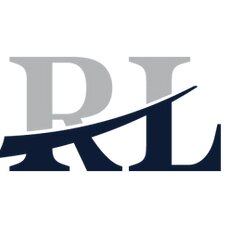Best ADR Mediation & Arbitration Lawyers in Grande Prairie
Share your needs with us, get contacted by law firms.
Free. Takes 2 min.
List of the best lawyers in Grande Prairie, Canada
About ADR Mediation & Arbitration Law in Grande Prairie, Canada
Alternative Dispute Resolution (ADR) encompasses various methods used to resolve disputes outside of traditional judicial proceedings. In Grande Prairie, Canada, ADR methods such as mediation and arbitration offer individuals and businesses opportunities to settle disputes more amicably, cost-effectively, and faster than going through the courts. Mediation involves a neutral third-party mediator who facilitates discussions between disputing parties to reach a mutually agreeable solution. Arbitration, on the other hand, involves an arbitrator who listens to both sides and makes a binding decision. These processes are particularly popular in civil disputes, commercial disagreements, and family law cases in Grande Prairie.
Why You May Need a Lawyer
There are several situations where seeking legal assistance in ADR mediation and arbitration might be necessary:
- Complex Disputes: When disputes are complex and involve substantial amounts of money or sensitive issues, having a lawyer can ensure that your interests are effectively represented.
- Unequal Bargaining Power: If one party has significant power over the other, such as in employment disputes, a lawyer can help balance the scales.
- Enforcement of Agreements: Legal advice may be necessary to draft or review the enforceability of settlements reached through ADR.
- Procedural Issues: Lawyers can help navigate the procedural aspects of arbitration, ensuring compliance with any legal formalities.
- Emotional Involvement: In cases where emotions run high, such as family disputes, a lawyer can provide an objective approach to reach a resolution.
Local Laws Overview
The legal framework governing ADR in Grande Prairie is consistent with Alberta’s provincial laws, which provide a robust structure for mediation and arbitration practices. The Alberta Arbitration Act is a key piece of legislation that sets out how arbitration should be conducted, addressing aspects such as the appointment of arbitrators, procedures, and enforcement of awards. In family law, mediation is often encouraged, and mediators may need to meet certain qualifications or adhere to specific standards. Grande Prairie also encourages mediation through various community and governmental programs, promoting ADR as a viable alternative to litigation.
Frequently Asked Questions
What is the difference between mediation and arbitration?
Mediation is a collaborative process where a neutral mediator helps parties find a mutually satisfactory solution, whereas arbitration is more like a court proceeding where an arbitrator makes a binding decision.
Do I need a lawyer to participate in ADR processes?
While not mandatory, having a lawyer can be beneficial to protect your interests, especially in complex or high-stakes disputes.
Are ADR outcomes enforceable by law?
Arbitration decisions, known as awards, are legally binding and enforceable. Agreements reached in mediation can also be made enforceable if formalized in a contract.
How are mediators and arbitrators selected?
Parties may agree on a mediator or arbitrator. If they cannot agree, an appointing authority may be used to select one based on qualifications and experience.
Can I appeal an arbitration decision?
Arbitration decisions are generally final and not subject to appeal, though they can be challenged or set aside on limited grounds, such as bias or procedural errors.
What costs are involved in ADR?
ADR can be less expensive than court proceedings, but costs vary depending on the complexity of the case, fees for mediators or arbitrators, and any legal representation.
How long do ADR processes take?
Mediation can often resolve disputes in a few sessions, while arbitration may take longer, depending on the complexity and the procedural requirements.
Can ADR be used in family law disputes?
Yes, mediation is commonly used in family law to address issues like separation agreements, custody, and support arrangements.
What happens if parties cannot agree during mediation?
If mediation doesn't lead to an agreement, parties may proceed to arbitration or litigation to resolve the dispute.
Is ADR confidential?
Yes, ADR processes are generally private, and the details of the discussions are confidential, encouraging open communication between parties.
Additional Resources
For individuals seeking further information or support related to ADR mediation and arbitration in Grande Prairie, the following resources may be helpful:
- The Alberta Arbitration Act - outlines procedural regulations for arbitration.
- Grande Prairie Community Mediation Services - offers community-based mediation services.
- Legal Aid Alberta - provides legal services and support for those in need.
- Alberta Courts - offers information and resources on ADR availability in legal proceedings.
Next Steps
If you need legal assistance with ADR mediation and arbitration in Grande Prairie, consider the following steps:
- Identify the Issue: Clearly define the dispute or legal matter you need to address.
- Consult a Lawyer: Seek advice from a lawyer experienced in ADR to understand your options and determine the best course of action.
- Consider Mediation First: Explore mediation as a first step to resolving disputes amicably.
- Prepare for Arbitration: If arbitration is necessary, ensure you understand the process and have all relevant documentation and evidence ready.
- Review Agreements Carefully: If a resolution is reached, have any agreements reviewed by legal counsel to ensure enforceability and clarity.
Taking these steps can help you navigate ADR processes effectively and increase the likelihood of a satisfactory outcome.
Lawzana helps you find the best lawyers and law firms in Grande Prairie through a curated and pre-screened list of qualified legal professionals. Our platform offers rankings and detailed profiles of attorneys and law firms, allowing you to compare based on practice areas, including ADR Mediation & Arbitration , experience, and client feedback.
Each profile includes a description of the firm's areas of practice, client reviews, team members and partners, year of establishment, spoken languages, office locations, contact information, social media presence, and any published articles or resources. Most firms on our platform speak English and are experienced in both local and international legal matters.
Get a quote from top-rated law firms in Grande Prairie, Canada — quickly, securely, and without unnecessary hassle.
Disclaimer:
The information provided on this page is for general informational purposes only and does not constitute legal advice. While we strive to ensure the accuracy and relevance of the content, legal information may change over time, and interpretations of the law can vary. You should always consult with a qualified legal professional for advice specific to your situation.
We disclaim all liability for actions taken or not taken based on the content of this page. If you believe any information is incorrect or outdated, please contact us, and we will review and update it where appropriate.











